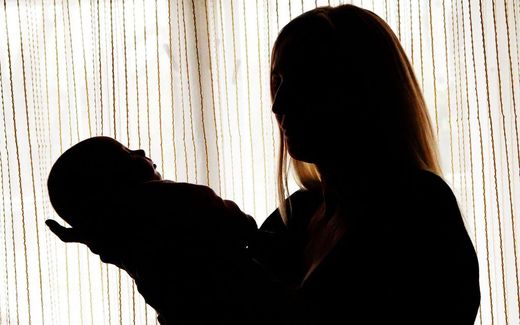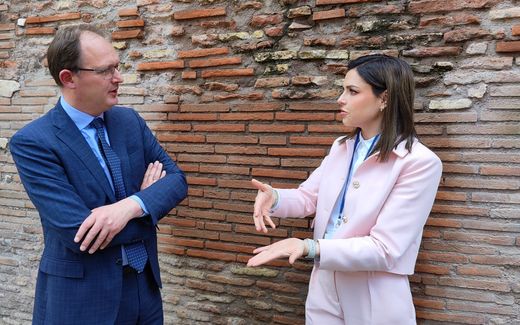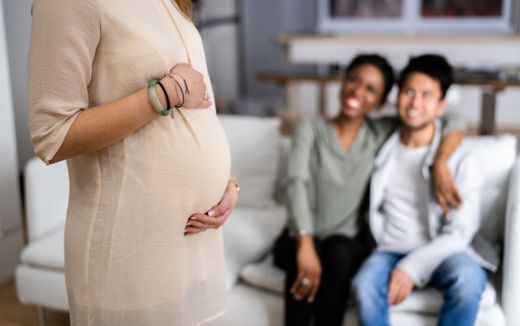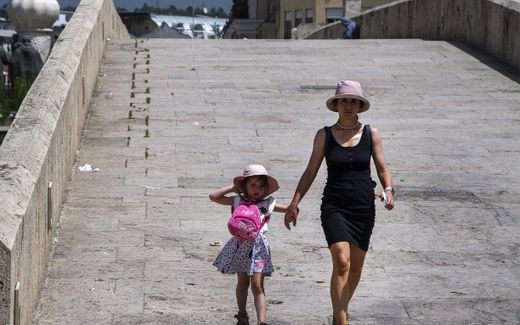Italy bans surrogacy from abroad
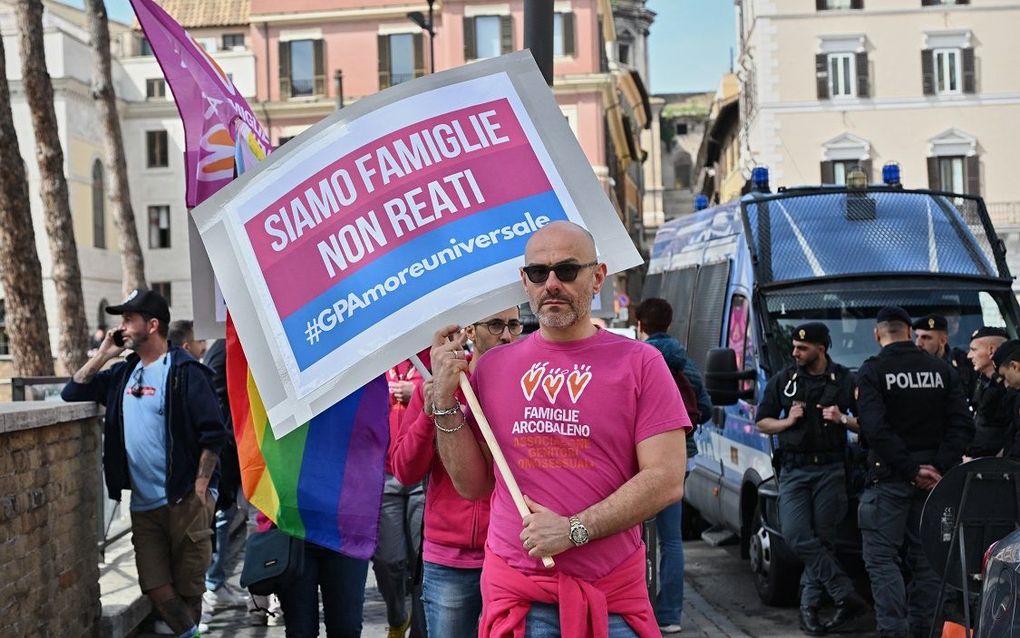
"We are families, not offenders", reads a placard during a protest organised by LGBT organisations against the surrogacy law. Photo AFP, Andreas Solaro
Southern Europe
Italians who go abroad to have a baby through surrogacy will now risk fines and jail time. “We want surrogacy to be seen for what it is: an extremely bad thing.”
Stay up to date with Christian news in Europe? Sign up for CNE's newsletter.
On Wednesday, the Italian Senate adopted a bill put forward by Prime Minister Georgia Meloni’s ruling party, Brothers of Italy. Parliament already approved the proposal in July last year. Eighty-four senators voted in favour of the law, while fifty-eight voted against. With the Senate's approval, the final hurdle has been cleared, and the proposal becomes law.
Surrogacy, in which a woman carries a child for another, has been banned in Italy since 2004. It is punishable by up to two years imprisonment and fines of up to one million euros. Angered by what it calls “procreation tourism”, the initiators of the bill also want to make it a crime for Italians to have babies through surrogacy in countries where such arrangements are legal.
“Surrogacy is a degrading practice that affects women who often face economic difficulties”, says Carolina Varchi, a Brothers of Italy Senator who is spearheading the proposal. “It is a law that seeks to protect and shield women from those who want to turn their bodies into goods and children into commodities.”
The law is part of Prime Minister Georgia Meloni’s pro-family agenda. The bill’s passing is a victory for Meloni, who initiated a similar proposal as a member of parliament in April 2022. That bill was rejected, but Meloni has continued to fight the practice of surrogacy, calling it an “inhuman practice” that treats children as “supermarket products”.
The opinion of the Meloni government towards the practice echoes the stance of the Vatican towards surrogacy. In April, the Vatican issued a declaration in which it said that having a child via surrogacy violates the dignity of both the surrogate mother and the child and recalled that Pope Francis calls surrogacy “despicable” and urged a global ban in January.
Vincenzo Bassi, an Italian legal expert, is the President of the Federation of Catholic Family Associations in Europe (FAFCE). He says the law is a step forward in the fight against surrogacy, which he considers a form of human trafficking. “I like the goal that the Italian government is trying to reach: a universal ban on surrogacy.”
Practical
However, criticism of the new law is also prevalent. The Luca Coscione Association, a pro-surrogacy and pro-euthanasia group, refers to the law as a “political manifesto” and calls it practically unfeasible. “The law would be immediately challenged because it is legally inapplicable as it ignores the principle of double criminality, which is the basis of criminal law.”

The double criminality requirement states that a suspect can be extradited from one country to stand trial for breaking a second country’s law only if a similar law exists in the extraditing country.
According to Bassi from FAFCE, however, it is impossible to state in advance that things are practically unfeasible. "This is the first time this kind of law is being passed. With all first times, you have to see how something works out in practice."
Birth certificates
The new law will also prevent intended parents from being included on Italian birth certificates. Encouraged by several court rulings, local mayors have in recent years registered both biological and non-biological parents on these certificates. In 2016, Italy's highest court supported the transcription of a foreign birth certificate which named two mothers.
Under Meloni's government, birth certificates were changed to list "mother" and "father", rather than "parent 1" and "parent 2". Still, the courts were "creative" to list non-biological parents on the birth certificate, says Bassi. "This new law should prevent this from happening again. Judges now have a law that they need to consider."
Bassi hopes the law changes a lot in practice. “There are several lawsuits pending at the Supreme Court around the issue of birth certificates. This law can hopefully serve as an example for other countries as well. It is a first step to promote a universal ban on surrogacy at an international level.”
The bill initiator, Carolina Varchi, says that the bill’s goal is to act as a deterrent. “We want surrogacy to be seen for what it is: an extremely bad thing.” Bassi agrees with that. “The fact that it is now part of the Criminal Law makes it a deterrent in itself. We have to keep understanding that you have no right to a child. You receive them; you do not get one because it is your right.”
Related Articles


